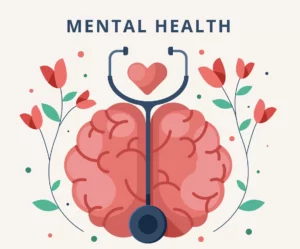
Life is filled with ups and downs, and at times, we all face challenges and stressors that can leave us feeling overwhelmed. Coping strategies are the techniques and behaviors we employ to manage and navigate these difficult situations. They empower us to face adversity, reduce stress, and maintain our overall well-being. In this article, we will explore what coping strategies are and provide examples of effective techniques that can help individuals cope with various life circumstances.
Coping strategies are adaptive responses that enable individuals to deal with stress, change, and adversity effectively. They encompass a wide range of psychological, emotional, and behavioral approaches aimed at reducing distress and promoting resilience. Coping strategies are not one-size-fits-all solutions; instead, they should be tailored to an individual’s personality, preferences, and specific situation.
Coping strategies are indispensable tools for managing the various challenges and stressors that life throws our way. They empower individuals to take control of their well-being and build resilience in the face of adversity. By understanding and implementing effective coping strategies, we can enhance our ability to navigate difficult situations and maintain our mental and emotional health.
It’s important to remember that coping strategies are not a one-time solution but rather an ongoing practice. Different strategies may work better for different people and situations, so it’s essential to experiment and find what works best for you. Additionally, it’s crucial to seek professional help if coping strategies alone are not sufficient or if you’re facing overwhelming challenges that require specialized support.
Remember, coping is not about avoiding or suppressing emotions; it’s about acknowledging them, finding healthy ways to process them, and developing a toolkit of strategies that support your well-being. By incorporating effective coping strategies into your daily life, you can build resilience, reduce stress, and navigate life’s challenges with greater ease and confidence.
https://my.clevelandclinic.org/health/articles/6392-stress-coping-with-lifes-stressors
https://www.semel.ucla.edu/dual-diagnosis-program/News_and_Resources/How_Do_You_Cope
https://positivepsychology.com/coping/
https://www.goodtherapy.org/blog/psychpedia/coping-mechanisms
https://stlmentalhealth.com is a St. Louis mental health therapy practice in Creve Coeur, Missouri. The practice has a team of mental health therapists who provide therapy and counseling services to kids, teens, adults, couples, and families. Pearlman & Associates specializes in stress, anxiety, depression, relationships, and other mental health related issues and concerns. The practice can be reached by phone at: 314-942-1147, by email at: bryan@stlmentalhealth.com or on the web at: https://stlmentalhealth.com/contact-us/. The office is located at: 655 Craig Road, Suite 300, St. Louis, MO 63141.